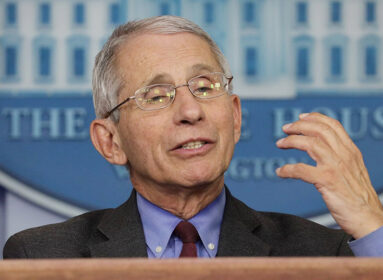Waterbury resident helps run Yeshiva University student conference
By Cindy Mindell
The Student Medical Ethics Society (MES) of Yeshiva University (YU) hosted its eighth annual Fuld Family conference, “Prescribing for a Nation: Examining the Interplay of Jewish Law and Israeli Health Care,” on Oct. 20.
The conference explored the ways in which Israeli medical institutions utilize Jewish law to form national policy as well as several important ethical and halachic questions that emerge from practicing medicine in Israel. Presenters also addressed the treatment of injured prisoners and violently anti-Israel persons, research and medical training in Israel, and the halachic issues surrounding fertility treatments, organ donation, and Shabbat care.

The Board of Directors of YU’s Student Medical Ethics Society. Waterbury resident Nechama Dreyfus, a student at YU’s Stern College, is pictured in the second row, center (behind the students holding the poster).
MES, a student-run organization developed by and under the guidance of YU’s Center for the Jewish Future, was founded in 2005 to promote education and awareness of medical ethics on campus. In just a few short years, it has grown from a small student group into a major campus organization running large-scale events and educational programming with university-wide participation. Previous MES conferences have dealt with organ donation, fertility, modern genetics, Jewish approaches to complex mental-health issues, and medical dilemmas borne out of the Holocaust.
As a volunteer coordinator on the MES board, Waterbury resident and YU’s Stern College student Nechama Dreyfus works to generate interest and involvement among the YU student body.
The annual conference topic is selected by the co-presidents of the Medical Ethics Society, this year, Chana Herzig and Kalman Laufer.
“With health care policy in the United States evolving right before our eyes, we are all interested to learn how Israeli institutions tackle the same difficult questions,” says Herzig. “As Jewish medical practitioners, we take on a heightened level of responsibility. It is important for us to learn how medical policy is developed through the prism of halacha in the Jewish State so that we can transform our own, individual decision-making processes appropriately.”
A highlight of the conference was a plenary session on Israeli methods of responding to medical crises and terror attacks featuring Dr. Mitchell Schwabber, director of the National Center for Infection Control at the Israel Ministry of Health and a staff physician of Israel’s renowned mobile trauma hospital in Haiti, and Dr. Michel Frogel, president-elect of American Physicians and Friends for Medicine in Israel. Participants also included Rabbi Yosef Blau, YU senior mashgiach ruchani [spiritual advisor], and a representative from Israel-based ZAKA, a UN-recognized humanitarian organization dedicated to rescuing and recovering victims from terrorist attacks or natural disasters.
Dreyfus particularly enjoyed the keynote speaker, Prof. Yonatan Halevy, director general of Shaare Zedek Medical Center in Jerusalem and a key figure in the formation of Israel’s national medical policy.
“He discussed the fusion of Jewish values within the Israeli healthcare system as specifically seen within the Shaare Zedek Medical Center. It was really fascinating to hear how Israel aims to maintain the precarious balance between the secular value for the autonomy of the patient versus the religious value for the sanctity of life, all stemming from Israel’s unique status as a Jewish democratic state,” said Dreyfus.
While the question of providing medical care to terrorists or those who wish to harm Israelis was not addressed directly, Dreyfus says that Yitzchak Shalita of ZAKA alluded to the topic. “After terrorist attacks in Israel, ZAKA arrives to gather and identify human remains to ensure proper burial,” she says. “Shalita did mention that on these unimaginable missions, the remains of the terrorists are treated equally and gathered alongside the victims of the attack.”
A major in molecular and cellular biology heading down the pre-med path, Dreyfus says that her involvement in MES complements her studies and career aspirations. “From organ donation to conjoined-twin operations, I enjoy the opportunity to isolate different medicine-related questions and look into the potential ethical dilemmas, specifically from a halachic point of view,” she says.
Comments? email cindym@jewishledger.com.








 Southern New England Jewish Ledger
Southern New England Jewish Ledger








